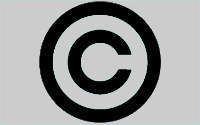
Universal Music Group is asking a
federal appeals court to reconsider a recent high-profile ruling that cleared video-sharing service Veoh of liability for copyright infringement by users.
A panel of the 9th Circuit reiterated last month that Veoh qualified for the Digital Millennium Copyright
Act's "safe harbor" provisions. They broadly state that online services providers aren't liable for infringement by users as long as providers remove material upon the owner's request. That ruling
marked the second time the 9th Circuit decided the case in Veoh's favor.
Universal now argues that the recent opinion "effectively rewrites" the Digital Millennium Copyright Act by requiring
content owners to police sites operated by Web service companies. The ruling "improperly shifts the burden of online copyright enforcement to content owners whose businesses depend on payment for the
use of their works, while broadly shielding Internet service providers ... who use and reap financial benefits from those works (without compensating their owners) even when they have the right and
ability to police their sites," Universal says in a motion asking the 9th Circuit to reconsider the case.
advertisement
advertisement
The appellate court hasn't said yet whether it will reconsider the case, but this week
the judges ordered Veoh to respond to Universal's motion.
The music company also argues that the pro-Veoh decision "ignores longstanding copyright law" by imposing liability on Web companies
only when they have information about specific instances of infringement. Universal says that ruling requires content owners like itself to "incur the expense of continuously scouring hundreds of
thousands (or indeed millions) of constantly changing internet websites, to attempt to locate copies of their works and then send take-down notices."
Universal's battle with Aereo dates to
2007, when the music company sued the video-sharing site for copyright infringement based on clips uploaded by users. While the case was pending, Veoh declared bankruptcy and was absorbed by Qlipso
Media Networks, but the litigation continued.
A trial judge ruled in favor of Veoh, and a three-judge panel of the 9th Circuit upheld that ruling in 2011. But the judges agreed to reconsider the case after an appellate court in New York issued a ruling in a
similar lawsuit by Viacom against YouTube.
In that case, U.S. District Court Judge Louis Stanton in New York ruled in 2010 that Google wasn't liable for users' infringement. But Viacom
appealed to the 2nd Circuit, and that court revived the lawsuit and returned the matter to Stanton for further proceedings.
However, the 2nd Circuit also said that YouTube would only be liable
if it knew about specific infringing clips (or was willfully blind to infringement on the service). The appellate court also made clear that YouTube had no affirmative duty to police its site for
infringement. This week, Stanton dismissed the lawsuit for the second time.